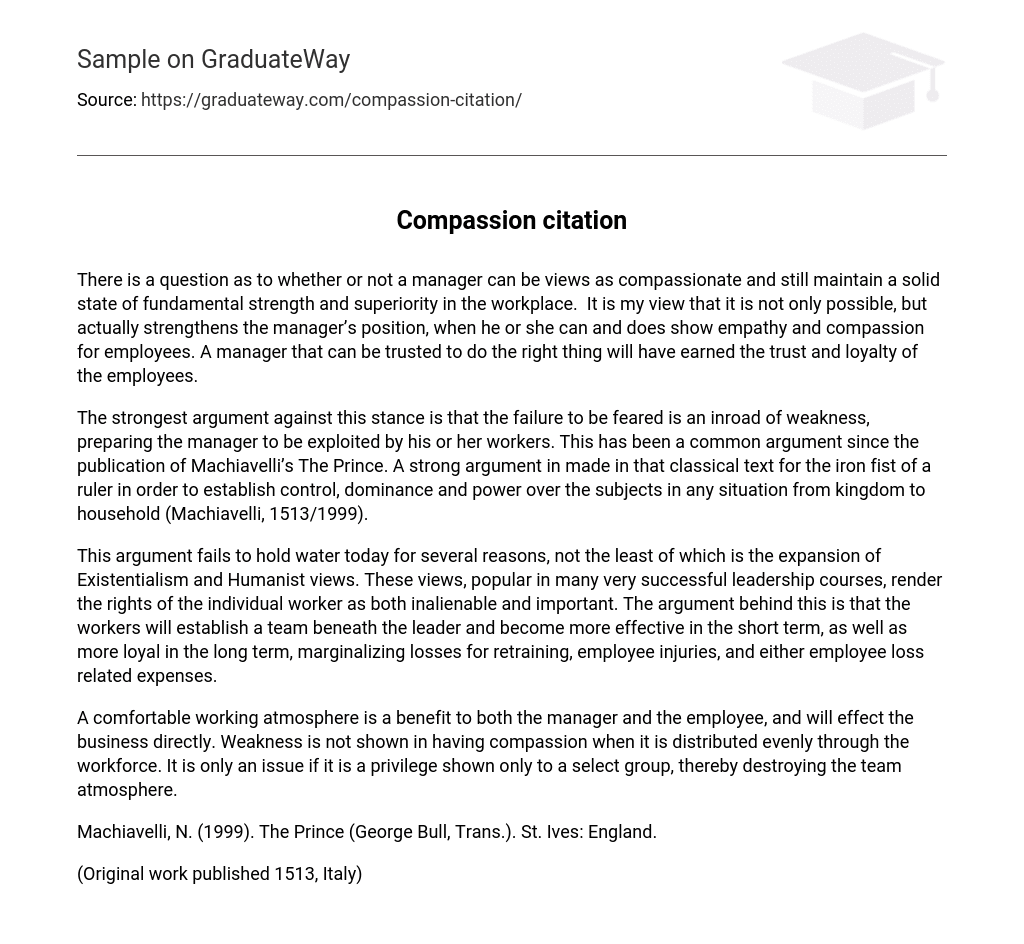There is a question as to whether or not a manager can be views as compassionate and still maintain a solid state of fundamental strength and superiority in the workplace. It is my view that it is not only possible, but actually strengthens the manager’s position, when he or she can and does show empathy and compassion for employees. A manager that can be trusted to do the right thing will have earned the trust and loyalty of the employees.
The strongest argument against this stance is that the failure to be feared is an inroad of weakness, preparing the manager to be exploited by his or her workers. This has been a common argument since the publication of Machiavelli’s The Prince. A strong argument in made in that classical text for the iron fist of a ruler in order to establish control, dominance and power over the subjects in any situation from kingdom to household (Machiavelli, 1513/1999).
This argument fails to hold water today for several reasons, not the least of which is the expansion of Existentialism and Humanist views. These views, popular in many very successful leadership courses, render the rights of the individual worker as both inalienable and important. The argument behind this is that the workers will establish a team beneath the leader and become more effective in the short term, as well as more loyal in the long term, marginalizing losses for retraining, employee injuries, and either employee loss related expenses.
A comfortable working atmosphere is a benefit to both the manager and the employee, and will effect the business directly. Weakness is not shown in having compassion when it is distributed evenly through the workforce. It is only an issue if it is a privilege shown only to a select group, thereby destroying the team atmosphere.
Machiavelli, N. (1999). The Prince (George Bull, Trans.). St. Ives: England.
(Original work published 1513, Italy)





